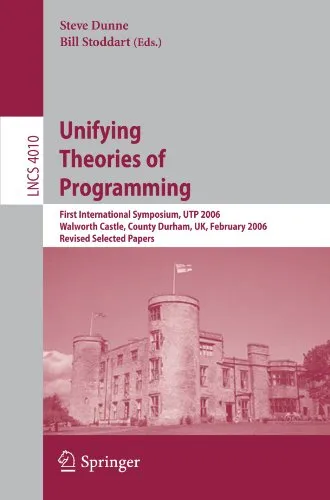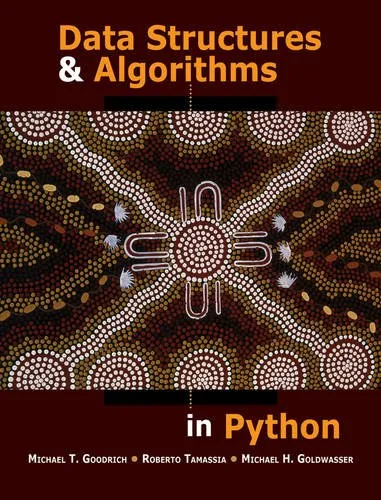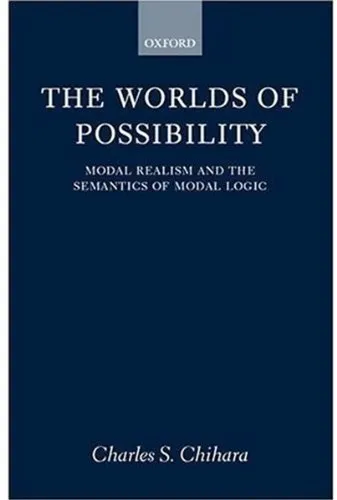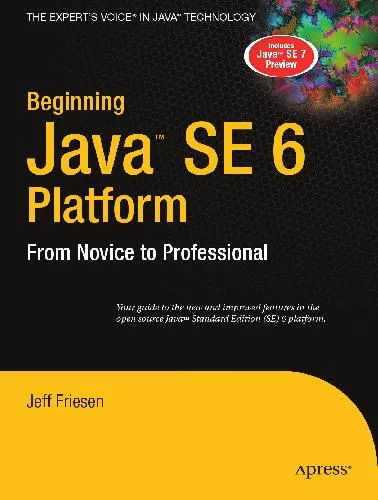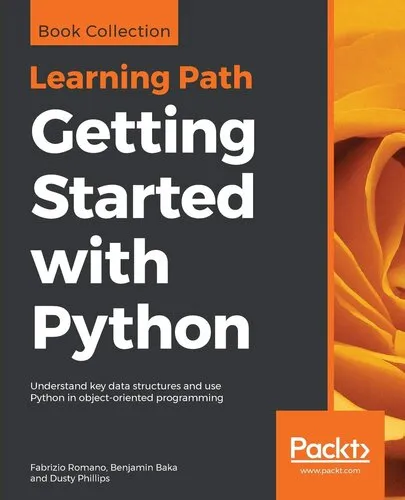Unifying Theories of Programming: First International Symposium, UTP 2006, Walworth Castle, County Durham, UK, February 5-7, 2006, Revised Selected Papers ... Computer Science and General Issues)
4.4
Reviews from our users

You Can Ask your questions from this book's AI after Login
Each download or ask from book AI costs 2 points. To earn more free points, please visit the Points Guide Page and complete some valuable actions.Related Refrences:
Introduction
Welcome to an exploration of computational theory and practice through the foundational discussions presented at the First International Symposium on Unifying Theories of Programming (UTP 2006). Held in the historic surroundings of Walworth Castle, County Durham, UK, this symposium gathered leading minds to delve into the 'unifying theories' framework, a paradigm focused on bridging different programming approaches and forming a coherent structure for reasoning about computational systems.
Detailed Summary
The book "Unifying Theories of Programming: First International Symposium, UTP 2006" compiles selected papers that were rigorously revisited and are now published for academic and professional enrichment. The symposium's primary goal was to encourage discussions that examine the diverse theories and methodologies in programming and how these can be synthesized into a singular, unified theory that provides comprehensive insights into software development and verification.
The collection covers various topics, including algebraic approaches, formal methods, category theory, and logic domains. By fostering a collaborative and interdisciplinary approach, the book illustrates potential pathways for achieving theoretical homogeneity in software engineering and programming. The dialogue around abstraction, specification, and implementation of programming languages and systems takes center stage, highlighting the necessity of cohesive theoretical underpinnings in handling complex software designs.
Key Takeaways
- Understanding the 'unifying theories' concept as a framework for integrating diverse programming methodologies.
- Exploration of algebraic strategies in programming that help in achieving systematic software verification and development processes.
- Insight into how category theory and other mathematical approaches contribute to unifying theoretical frameworks.
- Discussions on formal methods and their critical role in establishing sound software practices.
- Examples of theoretical applications in real-world programming challenges and opportunities for further research.
Famous Quotes from the Book
“The unification of programming theories is not just an academic endeavor but a necessity for the practical and reliable construction of complex systems.”
“Formal methods provide the backbone on which the reliability of software systems stands; without a unified theoretical perspective, this structure is incomplete.”
Why This Book Matters
This book is significant because it addresses the critical need for cohesion across the various programming paradigms and theories that exist in today's software development landscape. As the complexities of software systems grow, so does the demand for a reliable and unified approach to programming. The insights provided in this book are invaluable for both researchers and practitioners seeking to build systems that are not only robust but also adhere to a foundational programming theory that ensures consistency and accuracy.
Moreover, it opens potential areas for future research by presenting a diverse set of ideas and perspectives. These insights can lead to innovative methods of software development and foster a continuous evolution of programming practices. The book is particularly useful for those involved in formal methods, theoretical computer science, and anyone interested in the principles underlying software engineering.
Free Direct Download
You Can Download this book after Login
Accessing books through legal platforms and public libraries not only supports the rights of authors and publishers but also contributes to the sustainability of reading culture. Before downloading, please take a moment to consider these options.
Find this book on other platforms:
WorldCat helps you find books in libraries worldwide.
See ratings, reviews, and discussions on Goodreads.
Find and buy rare or used books on AbeBooks.
1223
بازدید4.4
امتیاز0
نظر98%
رضایتReviews:
4.4
Based on 0 users review
Questions & Answers
Ask questions about this book or help others by answering
No questions yet. Be the first to ask!
